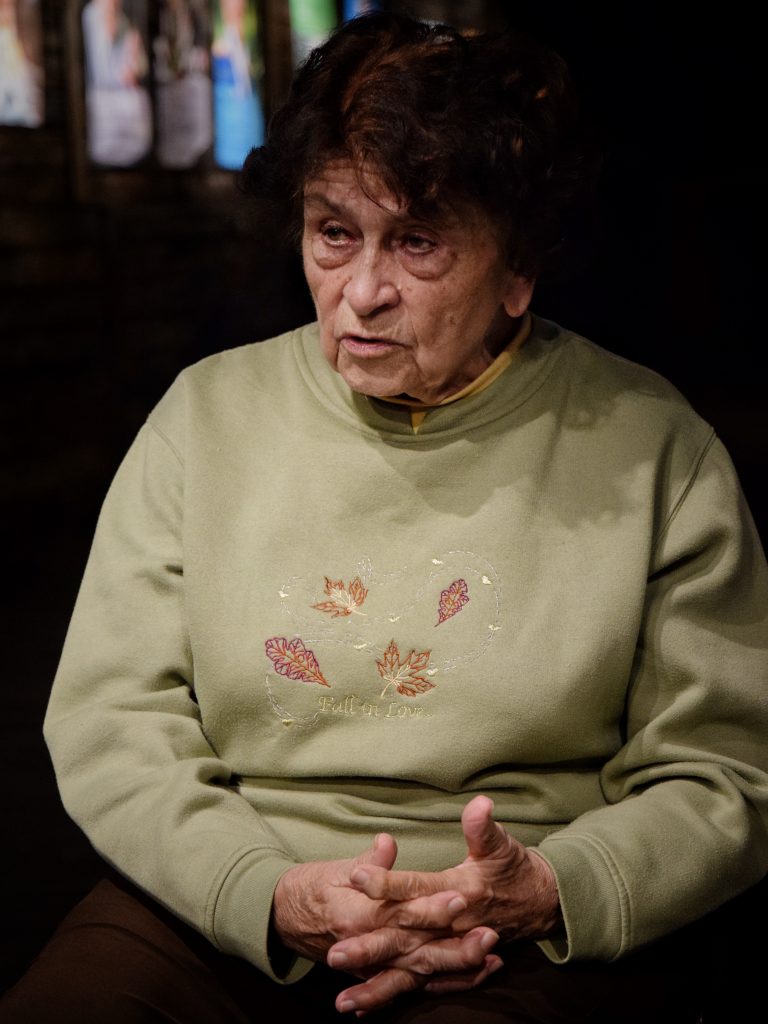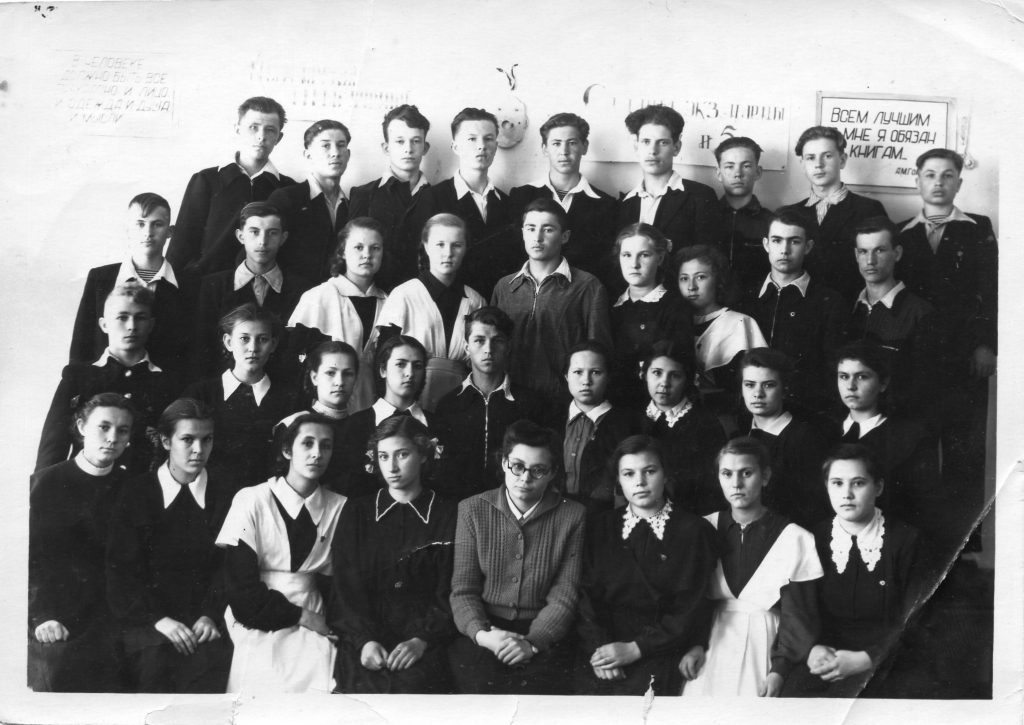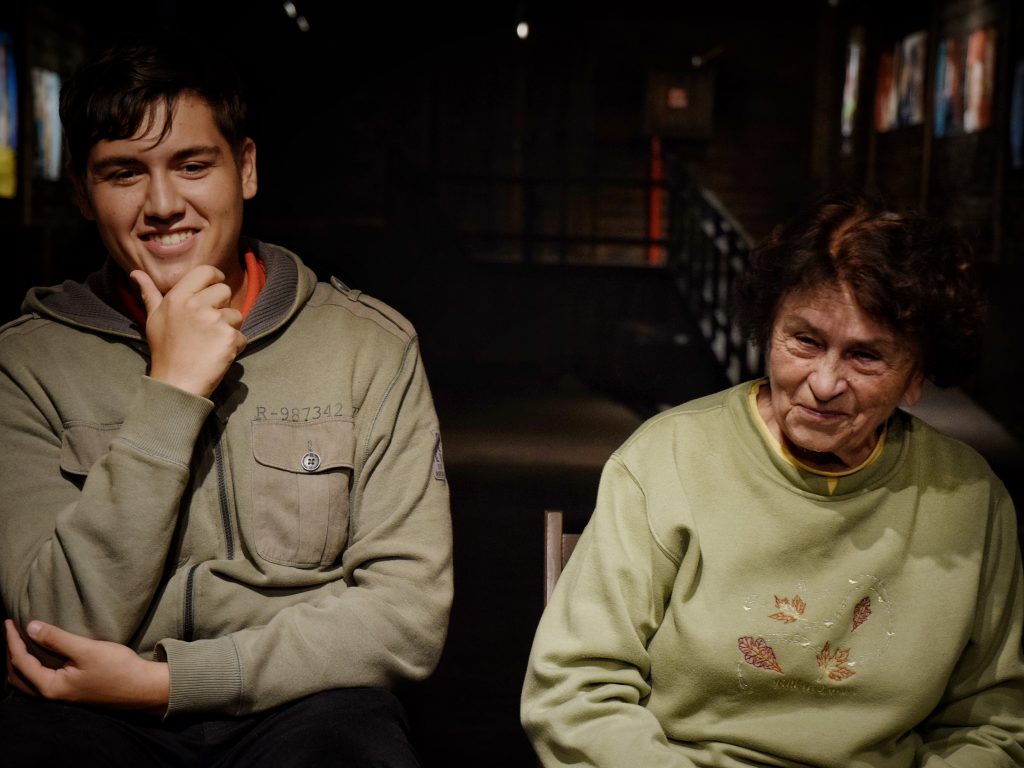Galyna Golovetska (Korduba)
“At that time, I was happy to be leaving because I could skip school”

Galyna Golovetska of the house of Korduba was born on April 27, 1938, in Lviv to a priest’s family. Her father, Emanuyil Korduba (born in 1907), was a priest in Rogatyn and later a chaplain in the Galicia Division; her mother, Yosyfa Korduba (born in 1910), of the house of Nestoriv, was raising children, running errands, and helping Father Emanuyil. When the war started, the family moved to village Mistky in the vicinity of Pustomyty. This is where her grandfather, Father Petro Korduba, who was taken to Siberia in 1939 together with his wife Sofiya and daughter Mariya, used to live and work.
It has not been identified where exactly the family was deported to, as Aunt Mariya, Father Petro and his wife died on the way back home. Galyna only remembers that they lived “500 km down River Yenisei”.
In summer 1944, the Kordubas moved to Skulsk (Poznań Voivodeship, Poland). In 1945, mother with two children, Galyna and Igor, returned to Lviv. Their multi-stage deportation started in 1950.
Vagrancy of the Korduba family
Galyna’s grandfather was a priest in village Mistky in Lviv Oblast. In 1939, he was deported together with his wife and one daughter, a teacher from Obroshyno (he had 11 children overall). The entire time the war lasted, he was in a settlement where a ship would go just once a year. Grandpa was 72 and grandma was 65. Granny died in the settlement. Galyna Golovetska recalls:
“Grandma died there. She loved coffee so much, and there was no coffee. Grandpa would go there… to places where grain was transported, and pick up any grain that dropped out, with a spoon, and then he would wash it, burn it slightly and make “coffee” for Grandma. Because she could not imagine her life without coffee. And the conditions were very harsh overall.”
Grandpa was trying to work as a greenhouse guard, but they were too picking on him, so it was only daughter who was employed. They lived a poor life and often had nothing to eat. Grandpa did not want to return but he knew that if he did not go with the Poles, aunt would get lost. He was very weak physically, and was transported on a stretcher. He died when he was taken to Tomsk. The location of his grave is unknown. Grandma was not allowed to go to Lviv; she lived in Eastern Ukraine for a long time and only made it back to her sister in Western Ukraine in five years. Her sister had seventeen children, and her husband was also prosecuted and forced to collaborate with the penal authorities.
“Uncle came and said, “Olenochko, I signed it”. Then she said, “Vasylko, how come you signed it?” He said, “Well, I didn’t! Get my things packed.” He was taken away the next day. And he spent the entire term of conviction, eight years, in prison.”
In Mistky, where the family lived before 1944, Galyna’s mother rescued a Jewish woman who was in need of help – the Kordubas helped her get to her friend in Krakow.
When Russians arrived, Galyna’s family fled Skulsk because her father was a chaplain in Galicia Division. “Mom was summoned to gmina and forced to sign that she is Polish and Catholic. She said, “I grew up in Poland but I have not and will not be Polish.” We were expelled from school because of that… They said they would not admit us to school and all that. In twenty-four hours, we were in Medyka. With four sandwiches and two bags. […] We were taken off the train and accommodated in a kind of a camp for displaced persons. A Polish coachman who was carrying them, he said, “Pani, do not take those bags of yours to that camp, because you’re not gonna get them back.”
They spent 1.5 months in that camp in Medyka and then returned to Lviv with new documents. Mom started working at school, but her monthly salary would only allow her to buy one bread.
Farming and side jobs helped them survive, Mom was also bringing packages to her female friends who were in prisons.
“Go pray your god to find her”
The family recalls a case when Mariya Korduba got lost and no one could find her, and when Father Petro asked for help, wardens said, “Go pray your god to find her.” The child was sitting on a bunch of tree branches in the forest before they found her.
On Galyna’s twentieth birthday, they were arrested and taken to the transfer prison.
“It was my birthday, April 27 at midnight, when they came to search our house. Mom did not wake us up because there was a lieutenant, well, kind of a normal person, not as those other people talked about, he said not to wake the kids up. Mom had her maiden name and we were Kordubas, so they were not certain what to do with us. Between midnight and six in the morning they were going somewhere, and then brought a piece of paper saying “Nestor – Korduba”. This is when they told to wake us up and get ready. Well, at that time I felt happy about leaving because that meant skipping school – put my doll into a bag, grabbed it, and I’m ready. My brother was helping our mother to pack. They allowed to pack everything we wanted but stole Dad’s watch. Mom said it was not expensive or made of gold – it was valuable as a memory. And he [lieutenant] tried to make his soldiers return it, but to no avail.”

The family was held in a transfer prison in Zamarstyniv for almost 4 months, and an epidemic of scarlet fever broke out during this period. Mom was regularly taken for interrogations:
“Mom said she would not sign, and he said, “I will send you to Polar bears and they will eat you.” Mom replied, “they will only kill me once, and if I sign, you will be eating me my entire life.” And as she did not sign, they started organising that, so to say, final transportation.”
On the way, her mother, Yosyfa, developed anaemia. “She was brought to the train car on a stretcher, but Aunt managed to give them four bottles of “iron” wine and that saved Mom.”
The guards were trying to unboard the family off the train in Tomsk, Omsk, Novosybirsk, and Irkutsk. There were too many displaced persons everywhere. They were initially brought to village Chipali in Khabarovsk Krai, later to Dvadtsyatka, Sovyetska Gavan, Selikhino, and Komsomolsk-on-Amur. Mom started found work at a bakery. Brother, 14 at that time, had to walk 20km to get to work. Overall, Galyna spent 9 years in Siberia, and her mother and brother spent 10 years. The Kordubas returned in 1960/1961. Galyna was living with her aunt, and her brother was studying at college. Their mother was not rehabilitated so she could not stay in Lviv.
Galyna recalls that they were accommodated in a single-room apartment that was shared by twelve people. The forced neighbours had to sleep on the floor. For a long period of time, the Kordubas also had to live in the basement of their own house that had been returned to them although other people had already moved in there. Getting their lives organised lasted for decades and they had to go through numerous challenges, such as the authorities were refused to register them, revoking stipends, etc.
“Mom dies in 1996. But every time, she would be surprised, “Oh, Galya, the blue-and-yellow flag is raised on the High Castle, let me see it again. Let me see it again!”
Father died of a stroke in England – he belonged to the division that was unarmed by the Italians. Once they were recognised as the Ukrainian Army and not the German forces, all of the 11,000 young men were resettled to England.

